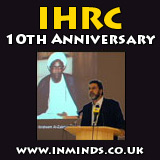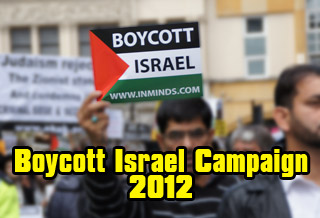
 Innovative Minds © 2014. All Rights Reserved. www.inminds.co.uk | ||||
|
Comment: The fruits of the academic and cultural boycott of Israel are beginning to blossom: "For the first time in the history of academic and musical life in Israel, dozens of musicians, scholars and educators from the field of classical music have come out with a joint call against the occupation.." The statement is rather weak focusing of the damage the occupation is doing to Israel rather than the suffering of the Palestinians, but its a start.. Israeli Musicians issue joint peace manifestoNoam Ben Ze'ev For the first time in the history of academic and musical life in Israel, dozens of musicians, scholars and educators from the field of classical music have come out with a joint call against the occupation and in favor of peace, rapprochement and a two-state solution.
Music is not divorced from the social context in which it operates; it does not come from outer space.
Dr. Lichtenstein (spearheaded the initiative) "We protest the prolonged occupation that is destroying our country's image," declare the signatories in a written statement. "Our continued control over the territories and their Palestinian inhabitants is morally wrong. The only positive option is an attempt to conduct responsible negotiations with Hezbollah, the Palestine Liberation Organization, Hamas, Lebanon and Syria." The document will be read publicly for the first time at a modern electronic and live music concert, scheduled to coincide with the ninth issue of "Tav Plus," the music and society periodical edited by Dr. Bat-Sheva Shapira. (The concert will be held in Shelter 209 at 116 Levinsky Street in Tel Aviv, on Thursday at 9:00 P.M.) Among the over 40 musicians signed onto the manifesto, one can also find leading figures in other fields: Avner Itai, Anat Morag, Itay Talgam, Maya Shavit and Yuval Ben-Ozer (conducting); David Halperin, Yehudit Cohen, Edwin Seroussi, Shoshana Weich-Shahak, Veronika Cohen, Shulamit Feingold and Shai Burstein (musicology); Zohar Eitan, Michael Wolpe, Nadav Ziv, Reuven Seroussi, Arik Shapira and Hagar Kadima (composition); Claudia Gluschankof, Fuad Jubran and Dutchi Lichtenstein (pedagogy and teaching); as well as singer Mira Zakai, pianist Zecharia Plavin, flutist Michael Meltzer and radio personality Dan Orstav. "The separation between involvement in music on the one hand and ideology on the other is unacceptable to me," says Dr. Lichtenstein, who spearheaded the initiative together with composer Hagar Kadima. "Music is not divorced from the social context in which it operates; it does not come from outer space. Someone here creates and performs it, someone receives and hears it, and someone decides how to support it and teach it and disseminate it, according to a certain order of priorities. This entire experience is political; and if we don't understand the political contexts and work for change, we will probably continue to be involved in study, and will delve into semiotic analysis and into performing the fine points of the work. But in the end they will remain on the shelf covered with dust." The document primarily expresses the Israeli point of view, discussing the damage Israel suffers in the area of security and the waste of essential resources on wars of choice, and makes little reference to the suffering on other side. "Peace is made with enemies," the document states. "We wanted the manifesto to express the opinion of as many people as possible, and therefore we were flexible about its contents," says Lichtenstein. "And I really did discover many colleagues who believe not necessarily in the power of music to bring peace, but in the important place of music in the experience and the political contexts of Israeli society." Source: http://www.haaretz.com/hasen/spages/883332.html Also Of InterestPage URL: http://www.inminds.co.uk/article.php?id=10181
|
|
Support Us
If you agree with our work then please support us.Campaigns INMINDS Facebook Live Feed Latest Video's
INMINDS Twitter Feed Tweets by @InmindsComFeatured Video's
You need Flash player 8+ and JavaScript enabled to view this video.
[all videos (over 200)..] Featured MP3 Podcast  "One of the first people we campaigned for [at IHRC] was Mu'allim Ibrahim Al-Zakzaky and 1000 of his supporters which were put in prison. All his comrades were put in prison and then eventually all their wives were put in prison and then all their children were put in prison including a three year old child who was ill in the prison and then what the Nigerian authorities were saying is that they should receive money to feed the prisoners when they have put the whole family and whole community in prison.." Chairman, Islamic Human Rights Commission Islamic Human Rights Commission 10th Anniv. Nov 2007 [7min / 3Mb] [all podcasts..] Newsletter Feedback |
 |
 |
















































